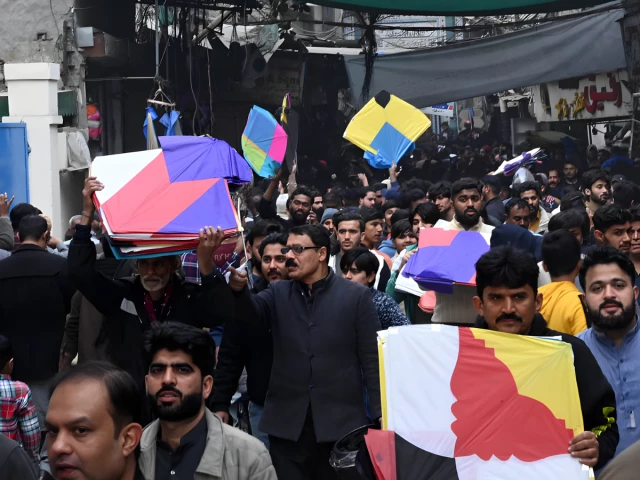- Musadik Malik stresses AI’s role in climate governance RADIO PAKISTAN
- Data governance must before AI policies, say experts Dawn
- PM launches ambitious AI roadmap The Express Tribune
- Govt to invest $1bn in artificial intelligence by 2030: PM…
Category: 1. Pakistan
-
Musadik Malik stresses AI’s role in climate governance – RADIO PAKISTAN
-
Non-bailable arrest warrant issued for KP CM Afridi in Peca case – Dawn
- Non-bailable arrest warrant issued for KP CM Afridi in Peca case Dawn
- Court issues non-bailable arrest warrant for KP CM Afridi in Peca case Pakistan Today
- NADRA report filed in Radio Pakistan attack case Minute Mirror
- Court issues non-bailable…
Continue Reading
-
Special committee formed to monitor development work, review any security operations in KP districts – Dawn
- Special committee formed to monitor development work, review any security operations in KP districts Dawn
- Malakand security to be handed back to civilian forces The Express Tribune
- PSL matches set to be hosted in Peshawar following high-level…
Continue Reading
-
Pakistan minister urges use of AI to help predict disasters, monitor climate risks – Arab News
- Pakistan minister urges use of AI to help predict disasters, monitor climate risks Arab News
- Data governance must before AI policies, say experts Dawn
- Govt to invest $1bn in artificial intelligence by 2030: PM Shehbaz Geo News
- Swiss Company is…
Continue Reading
-
Sindh bans ‘unauthorised’ photography of teachers, students in girls’ govt colleges – Dawn
- Sindh bans ‘unauthorised’ photography of teachers, students in girls’ govt colleges Dawn
- KP Higher Education Directorate Issues Strict SOPs for Girls’ College Events ProPakistani
- Women Colleges hit with Music, Dance, and Phone Ban amid…
Continue Reading
-
Sindh bans ‘unauthorised’ photography of teachers, students in girls’ govt colleges – Dawn
- Sindh bans ‘unauthorised’ photography of teachers, students in girls’ govt colleges Dawn
- KP Higher Education Directorate Issues Strict SOPs for Girls’ College Events ProPakistani
- Sindh bans photography in govt girls’ colleges The…
Continue Reading
-
Pakistan embarks on process of industrial reforms: Haroon – RADIO PAKISTAN
- Pakistan embarks on process of industrial reforms: Haroon RADIO PAKISTAN
- Japan-Pakistan Business Seminar 2026 highlights trust, quality and long-term economic alignment Dawn
- Govt signals regulatory easing to Japanese firms The Express Tribune
Continue Reading
-
Senate resumes discussions on incidents of terrorism – RADIO PAKISTAN
- Senate resumes discussions on incidents of terrorism RADIO PAKISTAN
- Death toll from suicide attack on imambargah in Islamabad reaches 38, hospital data shows Dawn
- Pakistan arrests 4 Islamabad bombing ‘facilitators’ as victims laid to rest Al…
Continue Reading
-
‘Hats off to you’: Maryam assures Bugti of Punjab’s full support for Balochistan – Dawn
- ‘Hats off to you’: Maryam assures Bugti of Punjab’s full support for Balochistan Dawn
- Punjab CM Maryam Nawaz arrives in Quetta for one-day visit The Express Tribune
- CM Maryam pays tribute to martyred Captain Muhammad Ali Qureshi The Nation…
Continue Reading
-

Criminal action sought against officials over deaths, injuries during Basant
Petitioner contended that Basant festival turned into a deadly threat for citizens rather than a celebration
A large number of people purchase kites in connection with the upcoming Basant festival in the provincial capital. PHOTO: APP
…Continue Reading